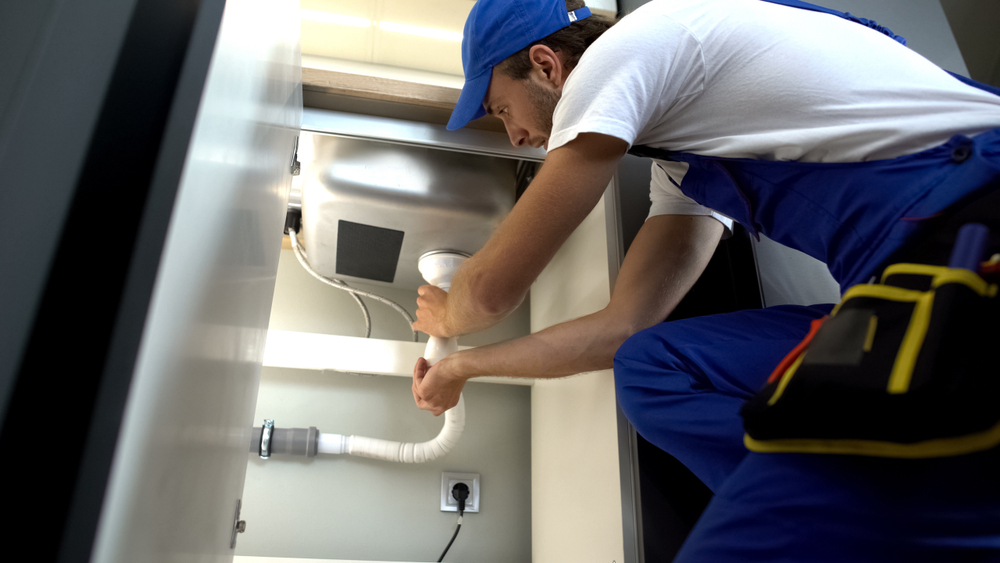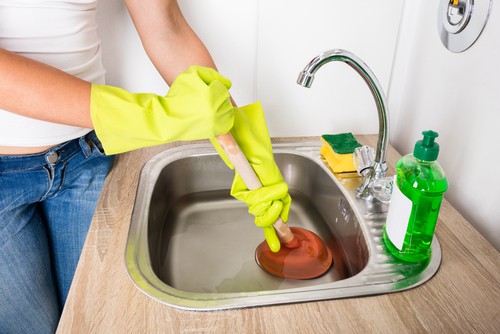Temporary Plumbing Fixes for Emergencies Until Help Arrives
Temporary Plumbing Fixes for Emergencies Until Help Arrives
Blog Article
This post on the next paragraphs relating to What to Do During a Plumbing Emergency is highly remarkable. Don't overlook it.

Pipes emergencies can strike at any moment, creating stress and prospective damages to your home. Whether it's a burst pipeline, a clogged up drain, or a leaking tap, understanding just how to manage the circumstance till a professional plumbing technician gets here can save you from additional difficulties. This write-up gives important emergency situation plumbing pointers to aid you mitigate damage and gain back control throughout a plumbing dilemma.
Shut off the Water
The first step in any plumbing emergency is to turn off the water system. For local concerns, such as a dripping faucet or toilet, shut off the valve near the fixture. In the case of a significant leakage or ruptured pipeline, situate your home's main water shut-off shutoff and transform it off instantly. Understanding the location of these valves ahead of time can conserve valuable time during an emergency situation.
Address Tiny Leaks with Short-term Solutions
Tiny leaks can rapidly end up being substantial problems if left unattended. Utilize these short-lived solutions until professional help shows up:
While these repairs aren't permanent, they can help minimize water loss and damages.
Unclog Drains Pipes Securely
A stopped up drain can be an aggravating and messy problem. Below's just how to tackle it:
If these techniques don't work, stay clear of making use of too much pressure, as it may worsen the blockage.
Take Care Of Overflowing Toilets
An overflowing toilet can create prompt turmoil. Here's what you need to do:
Shut Off Your Hot Water Heater
In particular emergency situations, such as a burst pipeline, it's smart to shut off your hot water heater. This stops getting too hot or damage to the unit when water quits flowing. Switch off the power supply to the water heater (electrical or gas) and let it cool off to avoid prospective hazards.
Momentarily Stop a Ruptured Pipe
A ruptured pipe can bring about considerable water damages in minutes. To minimize the problem:
Call a specialist plumbing quickly to deal with the trouble permanently.
Take Care Of Frozen Pipeline Very Carefully
In cooler environments, frozen pipelines are a common emergency. If you think an icy pipe:
Prevent Additional Damages
Taking quick action to decrease damage can save you money and time in the long run. Right here's just how:
. Have an Emergency Pipes Package
Prepare a basic plumbing emergency set to take care of minor issues successfully. Your package needs to include:
Having these devices handy can make a substantial difference in your ability to manage emergencies.
Know When to Call an Expert.
While quick fixes can assist momentarily, particular pipes concerns require immediate professional attention. Call a plumbing technician if:.
Promptly getting in touch with an expert makes sure the concern is settled appropriately and protects against further complications.
Conclusion.
Plumbing emergencies can be overwhelming, but with the best understanding and tools, you can handle the circumstance successfully up until help shows up. By shutting off the supply of water, attending to little leaks, and utilizing momentary repairs, you can reduce damage and keep your home safe. Remember, these tips are temporary solutions; always consult a licensed plumber to take care of the origin of the trouble. Prep work and quick thinking are your best allies in any kind of pipes emergency situation.
8 Helpful Tips for Managing Plumbing Emergencies at Home
If your plumbing system hasn’t failed once, wait for it because almost everyone has a story to tell. Sometimes, it could be simple emergencies such as a leaking pipe, a blocked cistern, or even a big burst pipe. In situations like this, you need to have some handy tips to save you some money and from possible damages.
Take care of minor issues early.
Sometimes, you could have avoided an emergency by taking proactive measures while it was still early. Some major plumbing emergencies can be a result of an ignored minor issue. We recommend that you have items like plumbing tapes and other related items. A plumbing tape can allow you to manage minor leaks before the plumber arrives.
Cut off the water supply.
This tip is essential in almost any type of leakage problem. For problems like minor leakages in the toilet or kitchen, turn off the supply that takes water to the affected pipes. If the leakage is a major pipe, you must shut off the supply valve to the entire building. This will help you avoid flooding your home and neighbors if you share a flat.
Know your plumbing system
Folks typically move into a new apartment without understanding the water supply around the building. This can prove disastrous if a water emergency arises and the plumber is far away. The previous tip will prove useless if you don’t practice this one. More importantly, know where your water shut-off valve is located – you’ll need that knowledge to prevent potential home floods.
Have some common handy tools
There are lots of plumbing emergencies that you can handle without hiring a plumber. That’s why you must keep some tools available always. Some tools that you can use to fix simple plumbing emergencies easily include plumbing tapes, screwdrivers, thread seal tapes, plungers, pliers, tape measures, and rubber gloves.
Insulate your pipes from cold
You’ll save yourself from many plumbing expenses if you protect your water pipes from the cold. This is because of the harmful effects that cold weather can have on your pipes. During winter, your pipes can burst from being overly expected to freezing temperatures. So, make sure insulators are there to keep the pipes working correctly.
Avoid practices that will clog your toilet.
Many people indulge in practices that can damage the plumbing system of the entire building. One of these is when they use their toilet to dispose-off garbage. They flush all kinds of things, such as paper towels, bandages, hairs, female sanitary products, etc., down the toilet. This will block your toilet in the long run, incurring unnecessary expenditures. Dump such waste in the trash instead.
Check your dials regularly.
Sometimes, there could be leakages in your home without noticing them in time. So, constantly monitor your water meter dial. If the dial is reading when there is nobody using water, this is an indicator that there is leaking. Check for leaks immediately. Call a plumber as soon as possible if you can’t find any.
https://www.constructionplacements.com/8-helpful-tips-for-managing-plumbing-emergencies-at-home/

As an enthusiastic person who reads on Plumbing Emergencies: Tips on What To Do Before, I figured sharing that short article was worthwhile. Enjoyed our write-up? Please quickly share it. Help other people discover it. Thanks so much for your time invested reading it.
This Site Report this page